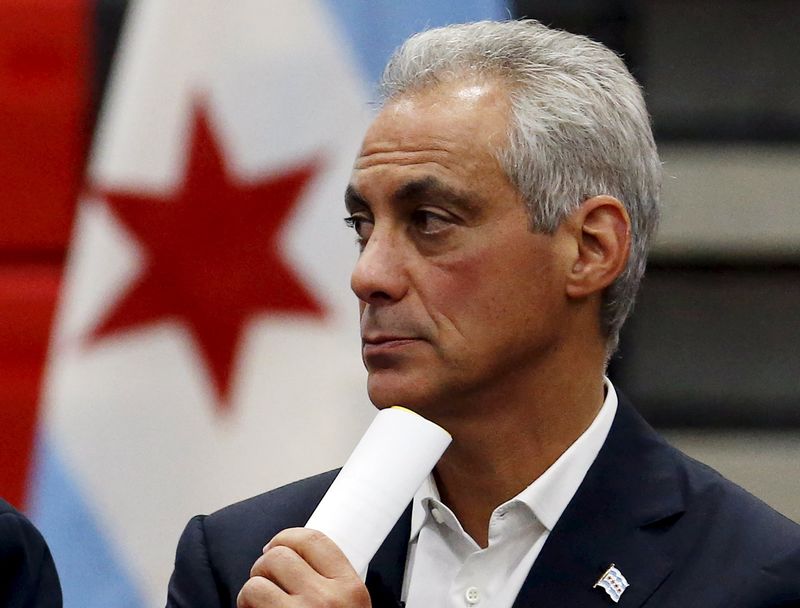By Jessica DiNapoli and Karen Pierog
NEW YORK/CHICAGO (Reuters) - Chicago Mayor Rahm Emanuel took his city fiscal push to New York on Monday to seek to convince skeptical municipal bond investors that Chicago is determined to fix its sagging finances which have dragged down its credit ratings and dramatically raised borrowing costs.
Emanuel addressed the Municipal Forum of New York, touting his fiscal 2016 budget, which includes a record $543 million, phased-in property tax increase to fund public safety worker pensions. The visit followed his appearance at a city-sponsored investor conference in Chicago on Friday.
"The budget ... has to be part of an overall economic strategy," Emanuel said Monday. "So therefore addressing our finances head-on, dealing with the challenges, eliminates one of the weaknesses that Chicago had for years, that was beginning to erode its strengths."
Paul Brennan, a senior vice president and portfolio manager at Nuveen Investments, who attended the Friday conference, said city officials emphasized their "political will" to fix Chicago's finances, as well as the city's a strong and diversified economy.
"But it's going to take a lot of political capital to tap in to those resources for more," he said.
Emanuel's spending plan for the fiscal year beginning Jan. 1 also relies on the passage of Illinois laws to ease the city's police and fire pension payments and to shield certain homeowners from the property tax increase, making it easier for some Chicago aldermen to support the budget.
"We just didn't get a lot of specifics about a Plan B or additional solutions that will be needed," Brennan said.
Matt Fabian, a partner at Municipal Market Analytics, who attended the muni forum speech, said the mayor's message was "the economy will help them grow out of those budget deficits."
"The mayor doesn't have flexibility to raise revenue after this tax increase," he said. "This tax increase will be the mayor's main shot in raising revenue."
Tim McGregor, director of municipal fixed income at Northern Trust (NASDAQ:NTRS), who did not attend the recent presentations by the mayor, said while the market reacted positively to news of the proposed tax hike, more needs to be done.
"The property tax probably needs to be tripled to really solve the problem," he said.
The 50-member Chicago City Council is scheduled to vote on the budget on Oct. 28, according to the mayor. Meanwhile, the city is preparing to sell more than $2.7 billion of debt this year despite warnings that its general obligation rating could be downgraded depending on the outcome of the mayor's proposed budget.

Chicago, which already saw its GO rating from Moody's Investors Service sink to "junk" in May, has been struggling with a $20 billion unfunded pension liability and a chronic structural budget imbalance.